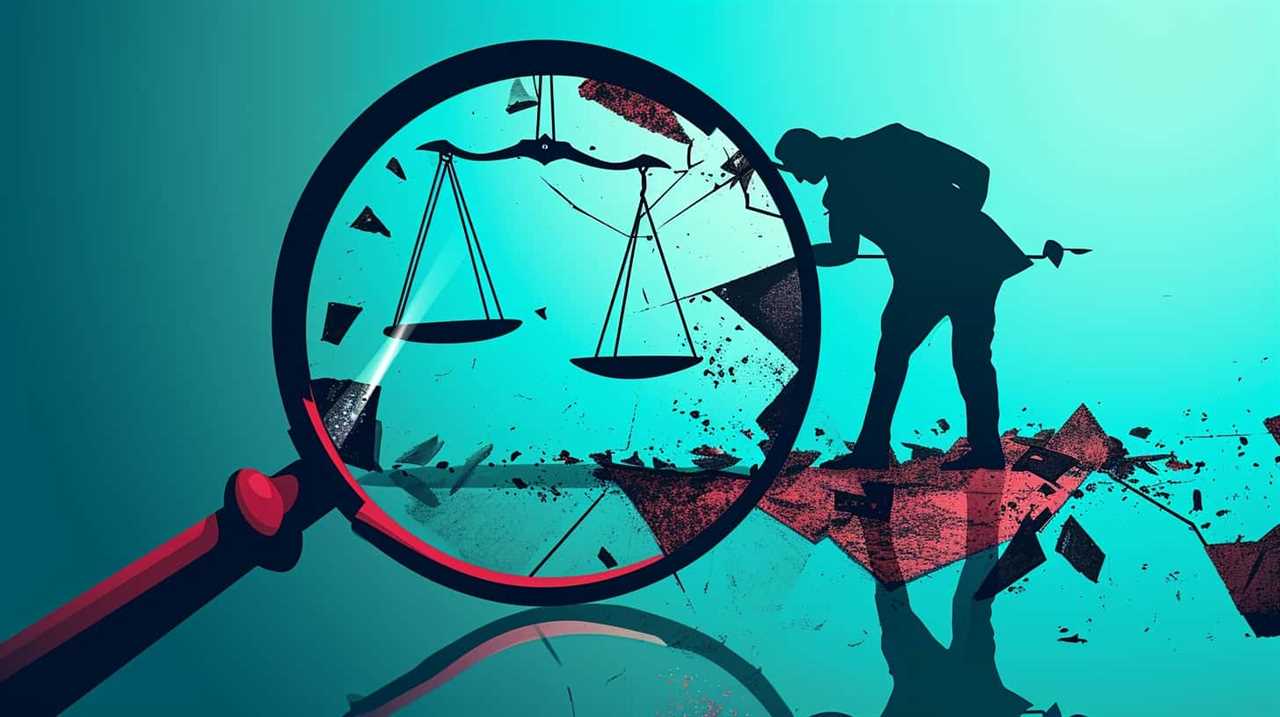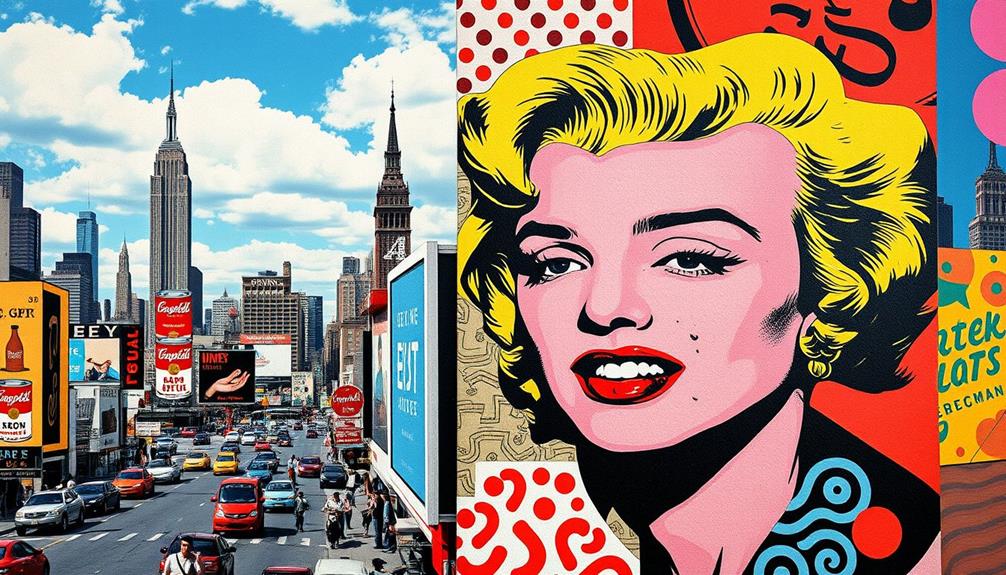Hello there!
So, let’s dive into Karl Marx’s perspectives on economic class struggle. You know, it’s fascinating how Marx, this brilliant thinker from the 19th century, laid the groundwork for understanding the dynamics of society and its classes.
He saw the world through a lens that was way ahead of its time, exploring how economic inequality shapes our lives and drives social change. Marx believed that history was driven by the clash between the haves and have-nots, the bourgeoisie and proletariat, if you will.
He argued that capitalism perpetuates exploitation and alienation, and that the accumulation of wealth by the few leads to social conflict. Marx’s ideas continue to resonate today, as they shed light on the power dynamics and inequalities that still persist in our modern society.

Key Takeaways
- Economic classes have existed since ancient civilizations, with ruling elites holding power and wealth while the majority of the population lived in poverty.
- The rise of capitalism led to the emergence of the bourgeoisie as the owners of the means of production and the proletariat as the working class.
- Capitalism is characterized by exploitation and alienation, with workers facing harsh conditions, low wages, and limited opportunities for personal growth.
- Wealth inequality and social inequality are pervasive under capitalism, with a small fraction of the population holding a disproportionate amount of wealth and power. This perpetuates social conflict and hinders social mobility.
Historical Development of Economic Classes
As we delve into the historical development of economic classes, it’s important to understand the intricate relationship between societal changes and the emergence of different socioeconomic groups. The historical origins of economic classes can be traced back to the early stages of human civilization, where societies began to organize themselves based on social stratification.
In ancient societies, such as ancient Mesopotamia and Egypt, social stratification was primarily based on birthright and occupation. The ruling elites, consisting of kings, priests, and nobles, held power and wealth, while the majority of the population, comprising peasants and slaves, lived in poverty and toiled to sustain the ruling class. This division of labor and resources created a stark inequality that persisted for centuries.
However, it was during the Industrial Revolution in the 18th and 19th centuries that the economic class system underwent significant transformation. The rise of capitalism and the shift from agrarian to industrial economies brought about a new class structure. The bourgeoisie, or the capitalist class, emerged as the owners of the means of production, while the proletariat, the working class, became dependent on selling their labor for wages.
Karl Marx, a renowned philosopher and economist, analyzed this historical development of economic classes and argued that social relations and class struggle were inherent to capitalist societies. According to Marx, the bourgeoisie exploited the proletariat, leading to conflicts and revolutions. His theories laid the foundation for a deeper understanding of the dynamics of economic classes and the potential for revolutionary change.

Exploitation and Alienation Under Capitalism
When examining the issue of exploitation and alienation under capitalism, it becomes evident that capitalist labor conditions play a crucial role.
The relentless pursuit of profit often leads to harsh working conditions, long hours, and low wages, leaving workers vulnerable to exploitation.
Moreover, capitalism’s focus on maximizing productivity and efficiency often disregards the fulfillment of human potential, reducing individuals to mere cogs in the machine.
This unequal distribution of wealth perpetuates social inequality, intensifying the alienation experienced by those who are marginalized and economically disadvantaged.

Capitalist Labor Conditions
The capitalist labor conditions, characterized by exploitation and alienation under capitalism, profoundly impact the lives of workers. These conditions are a result of the inherent nature of the capitalist system, where the pursuit of profit takes precedence over the well-being of workers. Exploitation occurs when capitalists extract surplus value from the labor of workers, paying them less than the value they produce. This creates a cycle of economic inequality and perpetuates the concentration of wealth in the hands of capitalists.
Alienation, on the other hand, refers to the estrangement of workers from the products of their labor and from their own human potential. In this system, workers are reduced to mere commodities, detached from the creative and fulfilling aspects of their work. This alienation not only hampers individual growth but also limits societal progress.
Transitioning into the next section, the unfulfilled human potential is a direct consequence of these exploitative and alienating labor conditions.
Unfulfilled Human Potential
Transitioning from the exploitative and alienating labor conditions discussed in the previous subtopic, we now delve into the consequences of these conditions: the unfulfilled human potential under capitalism. Capitalism, with its focus on profit maximization and competition, often hinders the realization of individual and collective aspirations.

Here are three key ways in which capitalism impedes the fulfillment of human potential.
- Limited access to resources: Under capitalism, the distribution of resources is unequal, leading to disparities in education, healthcare, and basic necessities. This restricts individuals’ ability to develop their skills and talents to their full potential.
- Narrow specialization and dehumanizing work: Capitalism often reduces individuals to mere cogs in the production process, limiting their ability to explore diverse interests and passions. This specialization and alienation can stifle creativity and personal growth.
- Inequality and social stratification: Capitalism perpetuates social hierarchies, where opportunities for advancement are unequally distributed. This creates barriers for individuals from marginalized backgrounds, preventing them from realizing their full potential.
The unrealized potential and unfulfilled human aspirations under capitalism highlight the need to explore alternative systems that prioritize human well-being and allow for the flourishing of diverse talents and aspirations.
Unequal Distribution of Wealth
As we delve into Karl Marx’s perspectives on economic class struggle, it is crucial to examine the unequal distribution of wealth as a result of exploitation and alienation under capitalism. Wealth inequality is a pressing issue in our modern society, with a small fraction of the population holding a disproportionate amount of wealth while the majority struggles to make ends meet. This stark disparity hinders social mobility and perpetuates a cycle of poverty and privilege. To shed light on this issue, let’s take a look at the following table:
| Wealth Distribution | Social Mobility |
|---|---|
| Concentrated in few | Limited |
| Unequal | Restricted |
| Reinforces inequality | Hindered |
This table highlights the consequences of wealth inequality, where the concentration of wealth in the hands of a few limits social mobility and creates a system that reinforces existing disparities. To foster innovation and progress, it is imperative that we address and rectify this unequal distribution of wealth.

Bourgeoisie and Proletariat
When examining Karl Marx’s perspectives on economic class struggle, it’s essential to explore the relationship between the bourgeoisie and the proletariat. This dynamic encapsulates the core points of Marx’s analysis, as it highlights the inherent conflict between the capitalist class and the working class.
Class Conflict Explained
While discussing Karl Marx’s perspectives on economic class struggle, it’s essential to explore the concept of class conflict, specifically the relationship between the bourgeoisie and the proletariat. Marx’s class struggle analysis is a key aspect of his overall framework for understanding society. Here are three key points to consider:
- Exploitation: Marx argued that the bourgeoisie, the capitalist class who owned the means of production, exploited the proletariat, the working class who sold their labor power. This exploitation was inherent in the capitalist system, as the bourgeoisie profited from the surplus value generated by the proletariat’s labor.
- Alienation: Marx believed that the proletariat experienced alienation under capitalism. Due to their lack of control over the means of production, they were disconnected from their labor, leading to feelings of powerlessness and an inability to fulfill their true potential.
- Class conflict: The relationship between the bourgeoisie and the proletariat was characterized by conflict, as their interests were fundamentally opposed. Marx predicted that this conflict would eventually lead to a revolution, with the proletariat overthrowing the bourgeoisie and establishing a classless society.
Marx’s impact on the understanding of class conflict and the dynamics between the bourgeoisie and the proletariat remains significant in contemporary discussions of inequality and social change.
Social Inequality Implications
To understand the implications of social inequality between the bourgeoisie and the proletariat, it’s important to recognize the stark power imbalance that exists within the capitalist system.
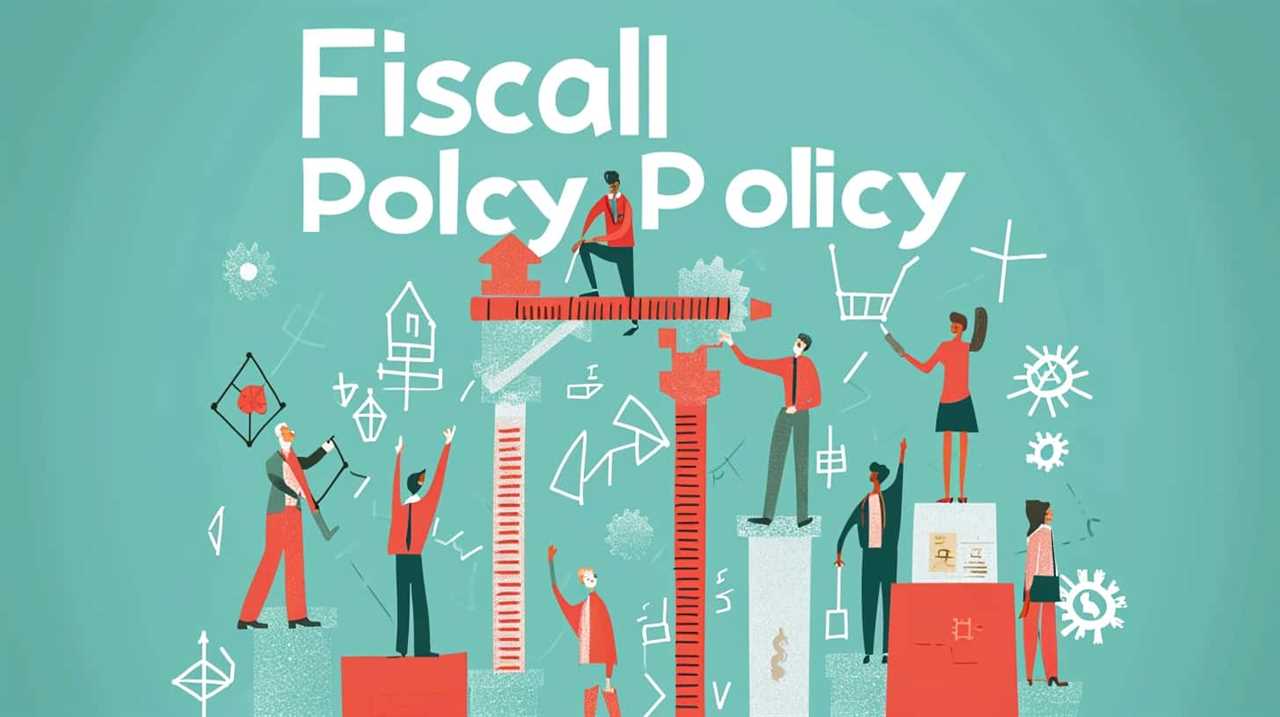
In the historical context of Karl Marx’s analysis, the bourgeoisie refers to the capitalist class that owns the means of production, while the proletariat represents the working class who sell their labor to survive. This division creates a hierarchy where the bourgeoisie accumulates wealth and power at the expense of the proletariat.
The societal implications of this inequality are numerous. The bourgeoisie, with their economic dominance, shape the political and social landscape to serve their interests. This perpetuates a cycle of exploitation and oppression, where the proletariat is forced to accept low wages and poor working conditions.
Moreover, this power imbalance denies the proletariat access to resources and opportunities, further entrenching their disadvantaged position in society.
It’s crucial to understand and challenge this inequality to strive for a more equitable and just society.
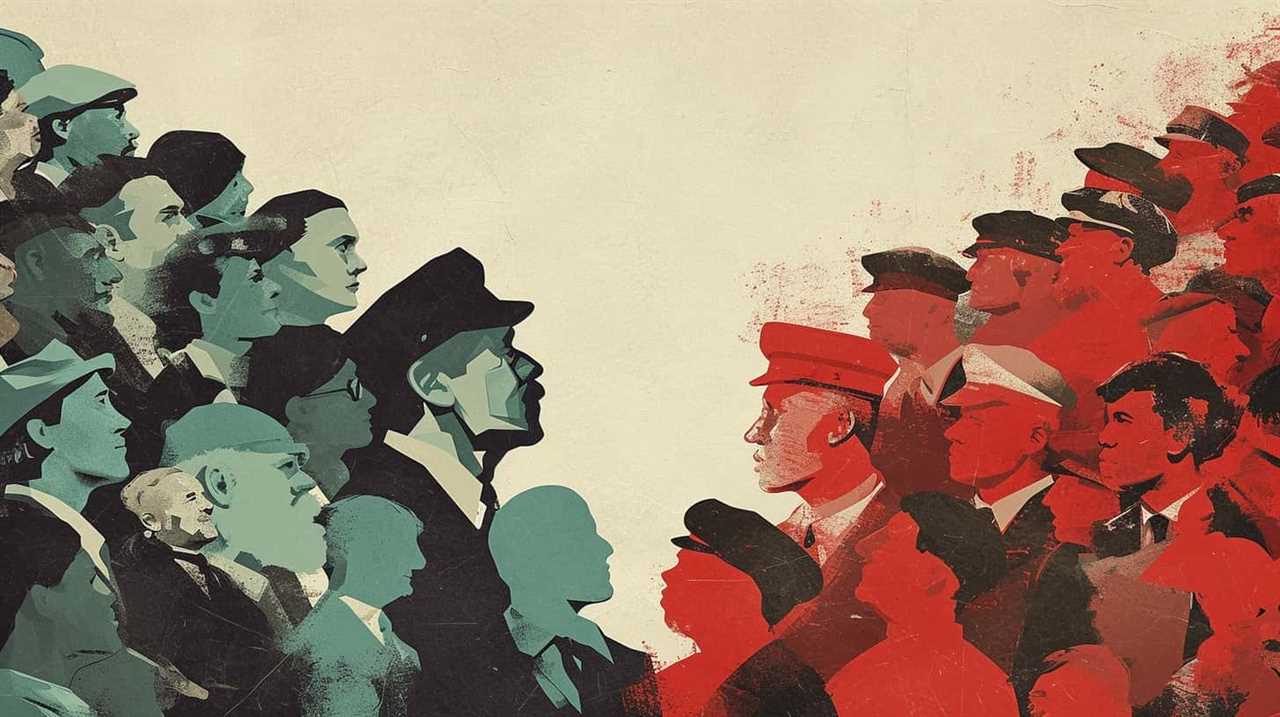
Historical Relevance Today
The historical relevance of the bourgeoisie and proletariat can be seen in their ongoing impact on societal structures and dynamics. Marxism, as a theory developed by Karl Marx, continues to shape our understanding of social class and the struggle for economic equality.
Here are three key ways in which the relevance of Marxism and the impact of the bourgeoisie and proletariat can be observed today:
- Social Movements: The ideas put forth by Marx, particularly the concept of class struggle, continue to inspire and inform social movements seeking to challenge inequality and advocate for the rights of the working class.
- Economic Inequality: The divide between the bourgeoisie and proletariat remains a central issue in our society, with wealth and power concentrated in the hands of a few while the majority struggle to make ends meet.
- Power Dynamics: The ongoing tensions between the bourgeoisie and proletariat highlight the power imbalances and exploitation inherent in capitalist systems, fueling discussions and debates about alternative economic models.
As we delve deeper into the topic of the relevance of Marxism, it’s crucial to explore the concept of capital accumulation and surplus value.
Capital Accumulation and Surplus Value
Examining the process of capital accumulation and the extraction of surplus value provides valuable insights into Karl Marx’s perspectives on economic class struggle. According to Marx, capitalism is characterized by capitalist exploitation, where the bourgeoisie, or the capitalist class, extracts surplus value from the proletariat, or the working class. This surplus value is the difference between the value produced by the proletariat through their labor and the wages they receive in return. It is through the accumulation of capital and the extraction of surplus value that the bourgeoisie maintains their power and wealth.

To better understand this concept, let us consider the following table:
| Capital Accumulation | Surplus Value Extraction | Economic Class Struggle |
|---|---|---|
| The continuous increase in the amount of capital owned by the bourgeoisie. | The process by which the bourgeoisie extracts surplus value from the proletariat through the exploitation of their labor. | The conflict between the bourgeoisie and the proletariat, driven by the unequal distribution of wealth and power. |
Marx argued that this capitalist exploitation and the resulting class struggle would eventually lead to a Marxist revolution, where the proletariat would overthrow the bourgeoisie and establish a classless society. This revolution would bring an end to the exploitation and inequality inherent in capitalism.
Transitioning into the subsequent section about ‘inequality and social conflict’, it is evident that the capitalist system perpetuates social and economic disparities, leading to heightened levels of inequality and increased social conflict.
Inequality and Social Conflict
Inequality and social conflict arise from the capitalist system perpetuating disparities and fueling tensions within society. The impact of inequality and social conflict on social mobility is profound, as it creates barriers that limit individuals’ ability to move up the social ladder. The concentration of wealth and power in the hands of a few creates a system that favors those who already have advantages, while leaving the rest behind. This leads to a perpetuation of inequality across generations, hindering social mobility and trapping individuals in their socioeconomic positions.

Moreover, the concept of intersectionality plays a crucial role in understanding the dynamics of inequality and social conflict. It recognizes that individuals experience multiple forms of oppression simultaneously, such as race, gender, and class. These intersecting identities intensify the inequalities they face, further deepening social conflicts.
Class struggle, a central theme in Marx’s analysis, is the driving force behind the inequality and social conflict we observe today. The capitalist system inherently creates a divide between the bourgeoisie and the proletariat, leading to a constant struggle for power and resources. This struggle shapes the social and economic landscape, as different classes vie for control and influence.
Transitioning into the subsequent section about ‘class struggle as the driving force of history’, it’s evident that Marx believed that this ongoing conflict would ultimately lead to a radical transformation of society. By examining the historical development of class struggle, we can gain insights into the potential for transformative change and the pursuit of a more equitable and just society.
Class Struggle as the Driving Force of History
Class struggle holds great historical significance as it serves as the driving force behind societal transformation.
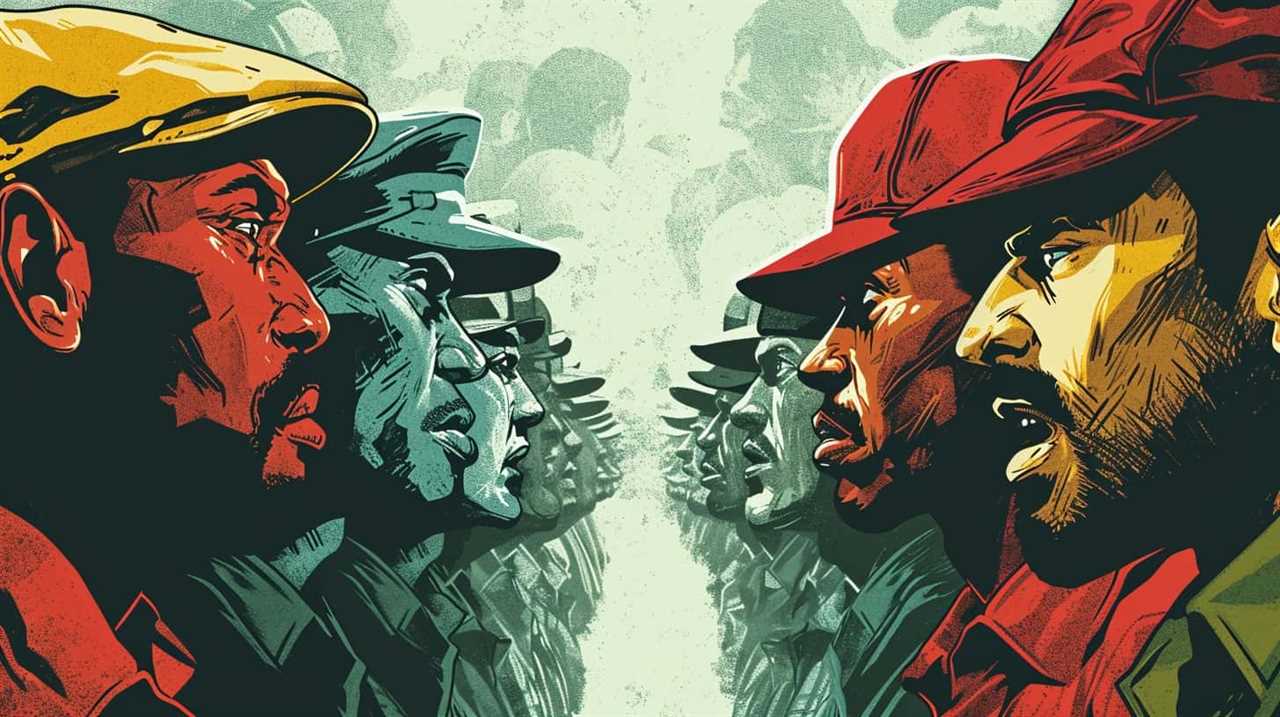
Marx’s theory on class struggle remains valid as it provides a critical lens to understand the dynamics of power, oppression, and social change.
Through the lens of class struggle, we can analyze how the conflicts and tensions between different economic classes shape the course of history, leading to the emergence of new social orders and the overthrow of existing ones.
Historical Significance of Class Struggle
Throughout history, the relentless conflict between social groups with differing economic interests has shaped the course of human development. Class struggle, even in pre-industrial societies, has played a significant role in shaping political systems and the overall trajectory of civilizations.
- Class struggle in pre-industrial societies: In feudal societies, for example, the struggle between the ruling class (the nobility) and the working class (the peasants) led to significant social and economic changes. The push for better working conditions, fairer distribution of resources, and increased rights and freedoms for the lower classes was a direct response to the exploitation and oppression they faced.
- Impact of class struggle on political systems: The class struggle has often led to the overthrow of oppressive regimes and the establishment of new political systems. Revolutions, such as the French Revolution and the Russian Revolution, were fueled by the discontent of the working class and their desire for a fairer society. These revolutions resulted in the downfall of monarchies and the rise of new political ideologies, such as socialism and communism.
- Transformation of societal structures: Class struggle has the potential to bring about significant societal transformations by challenging existing power structures and advocating for a more equitable distribution of wealth and resources. By highlighting the contradictions and injustices inherent in capitalist societies, class struggle has paved the way for social change and the pursuit of a more just and equal society.
Marx’s Theory Validity
We firmly believe that Marx’s theory on the validity of class struggle as the driving force of history remains a fundamental and influential perspective. Despite being developed in the 19th century, this theory continues to be relevant in contemporary society.

Marx argued that throughout history, society has been shaped by the struggles between different social classes, with each class striving for power and control over resources. This perspective provides a powerful lens through which to understand the dynamics of inequality, exploitation, and social change in modern times.
Moreover, the validity of Marx’s theory is further reinforced by the numerous contemporary interpretations that have emerged. Scholars and activists continue to draw upon Marx’s ideas to analyze and critique the current economic and social systems. By examining the power dynamics between different classes, these interpretations shed light on the structures that perpetuate inequality and oppression. Furthermore, they offer insights into potential avenues for transformative change.
In a world characterized by growing wealth disparities and increasing social unrest, Marx’s theory remains a valuable tool for understanding and challenging the status quo.
Social Transformation Through Struggle
In the course of history, societies have undergone significant social transformation through the ongoing struggle between different economic classes. This social change is driven by collective action and the clash between the bourgeoisie and the proletariat.

Here are three key ideas that illustrate the role of class struggle in social transformation:
- Historical Materialism: Marx believed that the development of society is determined by the material conditions of production. As the productive forces advance, contradictions between the ruling class and the working class intensify, leading to social revolution.
- Exploitation and Alienation: Marx argued that capitalism inherently exploits the labor of the working class for the benefit of the bourgeoisie. This exploitation creates alienation, removing the worker’s sense of purpose and connection to their labor.
- Revolutionary Consciousness: Through their collective struggles, the working class becomes aware of their exploitation and develops revolutionary consciousness. This awareness fuels their desire for social change and the overthrow of the capitalist system.
Understanding the role of class struggle in social transformation is crucial in comprehending Marx’s perspective on the inevitable collapse of capitalism.
The Inevitable Collapse of Capitalism
From Marx’s perspective, the eventual downfall of capitalism is an inevitable outcome of the inherent contradictions and unsustainable nature of the system. Capitalism, with its emphasis on private ownership and profit maximization, creates a stark division between the bourgeoisie and the proletariat. This class struggle, according to Marx, is the driving force behind the collapse of capitalism. The exploitation of the working class by the bourgeoisie leads to growing inequality and social unrest, ultimately undermining the stability of the capitalist system.
Marx argued that capitalism is inherently unstable due to its reliance on constant expansion and accumulation of capital. The pursuit of profit leads to overproduction, economic crises, and the concentration of wealth in the hands of a few. These contradictions within capitalism, Marx believed, create the conditions for its own demise.
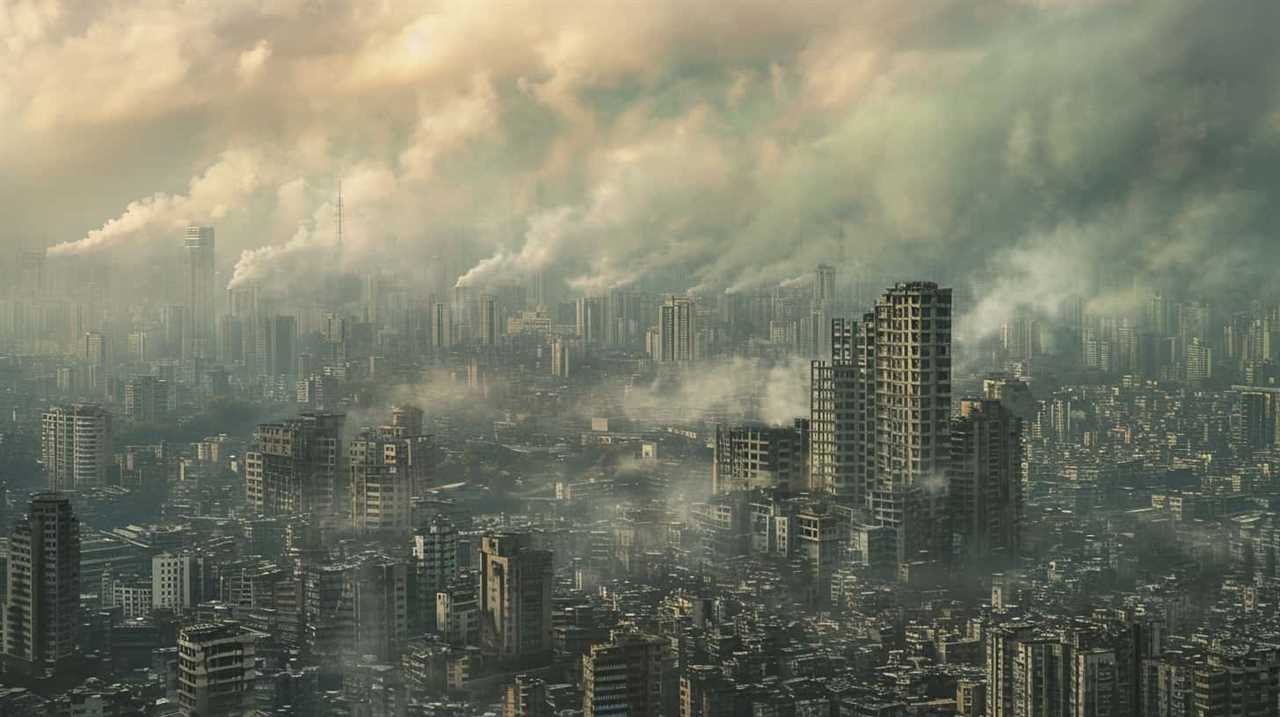
In considering alternatives to capitalism, Marx proposed the establishment of a socialist society, where the means of production are collectively owned and controlled. He envisioned a system where the working class would no longer be exploited, and where the focus would shift from profit to meeting the needs of all members of society.
Critique of the Capitalist Mode of Production
Continuing the analysis of Marx’s perspectives on economic class struggle, the critique of the capitalist mode of production reveals the inherent flaws and contradictions within the system.
The following are three key aspects that highlight the critique of capitalist exploitation and its impact on social mobility:
- Exploitation of Labor: Marx argued that capitalism relies on the exploitation of the working class. The capitalist mode of production, driven by the pursuit of profit, leads to the extraction of surplus value from the labor of workers. This results in the accumulation of wealth in the hands of the capitalist class, while workers are left with meager wages and limited opportunities for upward mobility.
- Increasing Income Inequality: Capitalism exacerbates income inequality by perpetuating a system that concentrates wealth and power in the hands of a few. As capital accumulates in the hands of the bourgeoisie, the gap between the rich and the poor widens. This unequal distribution of resources hinders social mobility, making it difficult for individuals from disadvantaged backgrounds to improve their economic situation.
- Alienation and Fragmentation: The capitalist mode of production alienates workers from the products of their labor, as they become mere cogs in the profit-making machine. This alienation extends beyond the workplace and permeates society, leading to a fragmented social fabric. The pursuit of profit takes precedence over human needs and fosters a culture of individualism, further hindering collective progress and social mobility.
The critique of the capitalist mode of production, as put forth by Marx, highlights the exploitative nature of the system and its detrimental impact on social mobility. This analysis invites us to question and innovate alternative economic models that prioritize the well-being of all individuals in society.
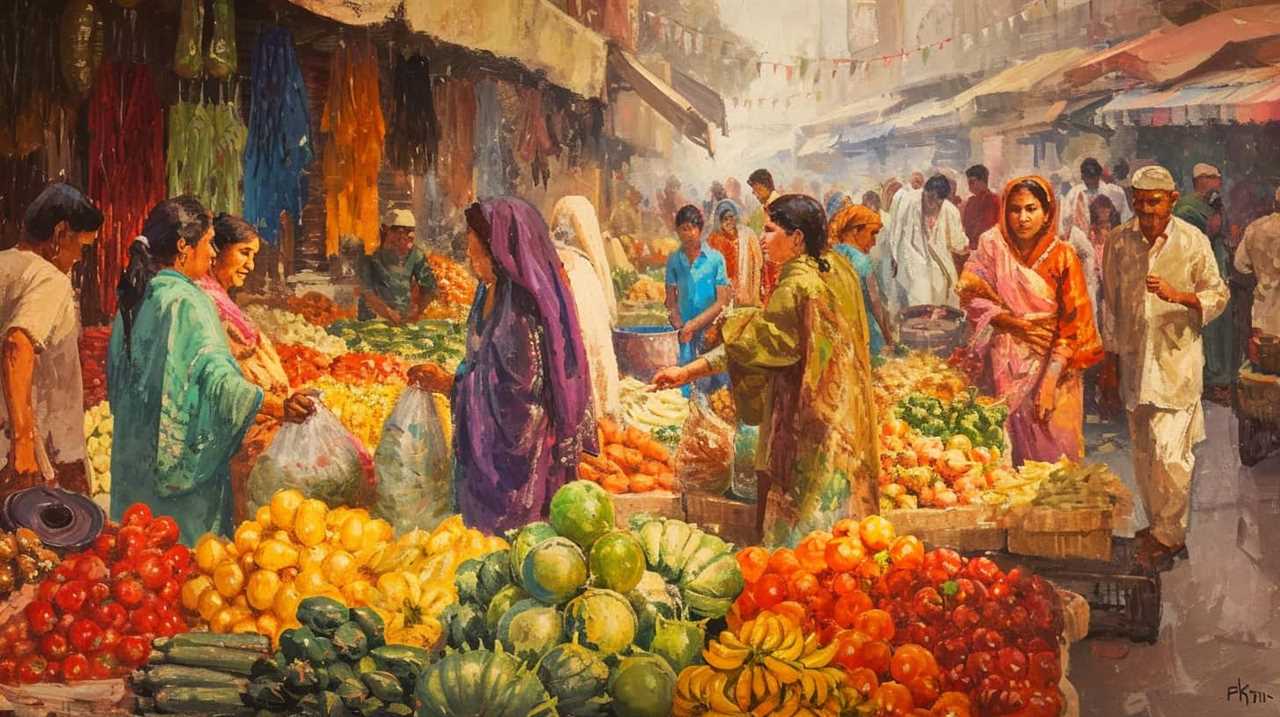
Role of the State in Perpetuating Class Divisions
When examining Karl Marx’s perspectives on the role of the state in perpetuating class divisions, two key points emerge.
Firstly, Marx argues that the state functions as a tool for enforcing the dominance of the ruling class, serving their interests and maintaining the existing class hierarchy.
Secondly, Marx emphasizes the close relationship between the state and socioeconomic inequality, asserting that the state plays a crucial role in upholding and perpetuating these inequalities through policies and mechanisms that favor the ruling class.
These points shed light on the systemic nature of class divisions and the role of the state in preserving them.

State as Class Enforcer
The state actively reinforces class divisions by enforcing laws and regulations that protect the interests of the ruling class. This role of government in perpetuating class divisions is a central component of Karl Marx’s class struggle analysis. The state functions as a tool of the ruling class, ensuring that their economic and social power is maintained.
Here are three ways in which the state serves as a class enforcer:
- Economic policies: The state implements policies that favor the interests of the ruling class, such as tax cuts for the wealthy or deregulation that benefits big corporations.
- Repressive measures: The state uses its power to suppress dissent and maintain social order, protecting the status quo and preventing challenges to the ruling class.
- Legal system: The state enforces laws that protect property rights, which primarily benefit the wealthy. This legal framework reinforces class divisions by maintaining the unequal distribution of wealth and resources.
State and Socioeconomic Inequality
As we delve into the role of the state in perpetuating class divisions, it becomes evident that the state’s active enforcement of laws and regulations that protect the interests of the ruling class significantly contributes to socioeconomic inequality.
State regulation, although often presented as a means to ensure fairness and stability, can actually reinforce existing power structures and hinder socioeconomic mobility for those outside the ruling class. By creating and upholding laws that favor the wealthy and privileged, the state solidifies the advantages of the ruling class, making it difficult for individuals from lower socioeconomic backgrounds to break free from the cycle of poverty and achieve upward mobility.

This systematic perpetuation of inequality creates a society where social and economic divisions are deeply ingrained, leading to a growing sense of discontent and the potential for working class consciousness and revolution.
Working Class Consciousness and Revolution
Our understanding of working class consciousness and revolution significantly deepens when we examine the collective power and agency that emerges from the shared experiences of the proletariat.
The working class, through their everyday struggles and interactions within the capitalist system, develop a sense of class identity and solidarity. This shared consciousness forms the basis for working class organization and collective action, as individuals recognize their common interests and unite against the oppressive forces of the bourgeoisie.
- Class identity: Working class consciousness arises from a recognition of one’s position within the capitalist hierarchy and the realization that their interests are fundamentally different from those of the ruling class. This awareness fosters a sense of collective identity and promotes the formation of working class organizations.
- Solidarity: The shared experiences of exploitation, alienation, and poverty create a bond among the working class. This solidarity fuels their desire for collective action and revolution, as they understand the need to stand together against the system that perpetuates their oppression.
- Collective power: Through collective action, the working class gains the power to challenge the existing social and economic order. Strikes, protests, and other forms of collective struggle become strategies through which the proletariat can assert their demands, disrupt capitalist production, and ultimately transform society.
Abolition of Private Property and Means of Production
To achieve our goal of transforming society, we must first address the abolition of private property and the means of production. Karl Marx argues that the economic system is inherently defined by class struggle, where the ruling class exploits the working class through the ownership and control of the means of production. Private property, in Marx’s view, is the source of this exploitation and perpetuates the unequal distribution of wealth and power.

Marx suggests that the abolition of private property is essential for the emancipation of the working class. By eliminating private ownership of the means of production, the working class would gain control over the production process, leading to a more equitable distribution of resources and wealth. This would fundamentally shift the power dynamics within society and create the conditions necessary for a classless society.
Furthermore, the abolition of private property would also dismantle the capitalist mode of production, which Marx argues is inherently exploitative. In a capitalist system, the bourgeoisie extracts surplus value from the labor of the proletariat, resulting in the accumulation of wealth for the few at the expense of the many. By abolishing private property, Marx envisions a system where production is organized for the collective benefit of society rather than for the profit of a capitalist class.
Transition to a Classless Society
The ultimate goal of achieving a classless society requires the complete reorganization of economic and social structures. In order to transition to a classless society, there are several challenges that need to be addressed and societal implications to consider.
Transition Challenges: The transition from a society divided into classes to a classless society isn’t without its challenges. One of the key challenges is the resistance from those who benefit from the current class system. The capitalist class, in particular, may resist the dismantling of their power and privilege. Additionally, there may be challenges in reorganizing the economy and redistributing wealth and resources in a fair and equitable manner. Overcoming these challenges requires a collective effort and a strong commitment to achieving social and economic justice.
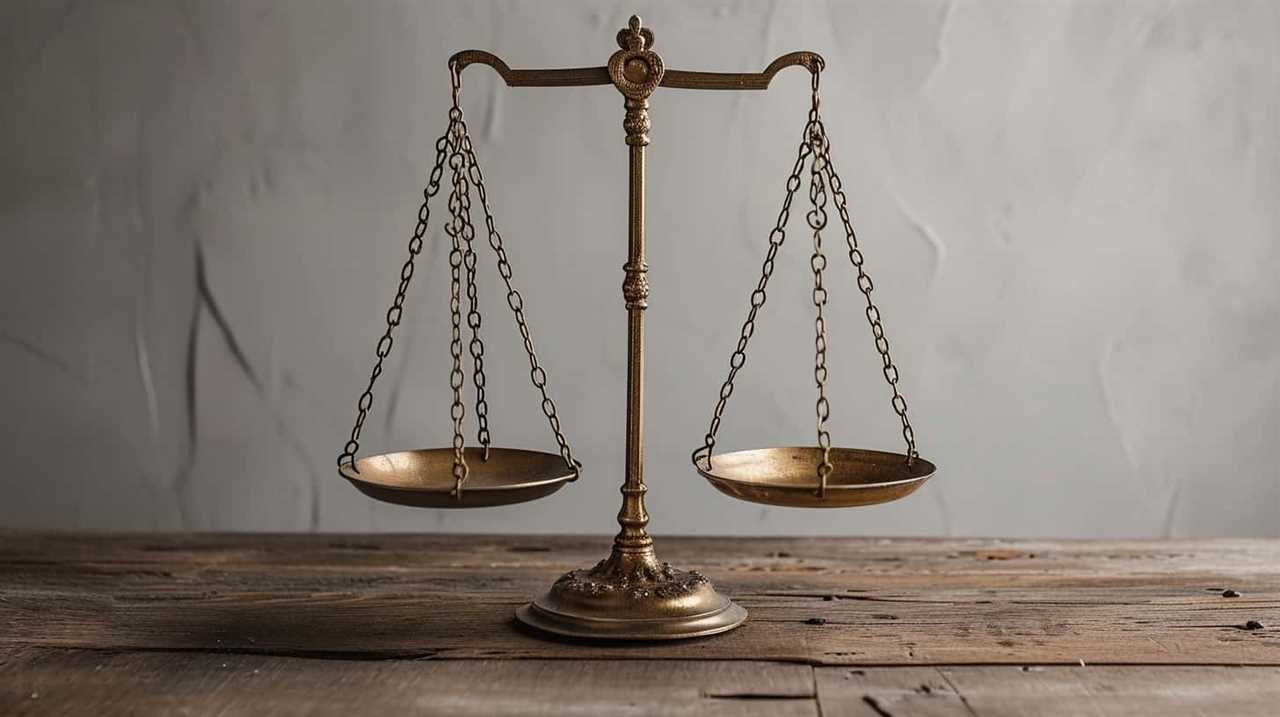
Societal Implications: The transition to a classless society has far-reaching societal implications. One of the most significant implications is the elimination of social inequality and the creation of a society where everyone has equal access to resources and opportunities. This would lead to a more equitable distribution of wealth and power, promoting social cohesion and solidarity. Additionally, the transition to a classless society would require a shift in societal values, away from individualism and towards collective well-being. This would necessitate a reevaluation of the current consumerist culture and a focus on meeting the needs of all members of society rather than the accumulation of wealth for a select few.
Innovation and Progress: The transition to a classless society opens up new possibilities for innovation and progress. By removing the barriers imposed by class divisions, individuals are free to pursue their passions and interests, leading to a flourishing of creativity and intellectual development. With a more egalitarian society, resources can be allocated based on need rather than profit, enabling the development of technologies and solutions that benefit society as a whole. The absence of class struggle and exploitation allows for a more harmonious and cooperative society, fostering collaboration and collective problem-solving. In this way, the transition to a classless society paves the way for a future characterized by innovation, progress, and shared prosperity.
Criticism of Other Economic Theories
One major criticism of other economic theories is their failure to adequately address the inherent contradictions and exploitative nature of the capitalist system. Neoclassical economics, for example, focuses on the idea of a self-regulating market where supply and demand determine prices and allocation of resources. However, this theory overlooks the power imbalances and class struggle inherent in capitalism.
Marxists argue that the capitalist system is built on the exploitation of the working class by the bourgeoisie, or the capitalist class.

Marxist analysis of imperialism further critiques neoclassical economics by highlighting the role of capitalism in perpetuating global inequality. According to Marx, imperialism is a natural extension of capitalism, driven by the need for constant expansion and accumulation of capital. This analysis challenges neoclassical economic theories that assume all actors in the global market are equal and that free trade will lead to mutual benefits for all nations.
By criticizing other economic theories for their failure to address the contradictions and exploitative nature of capitalism, Marxists offer a more comprehensive and nuanced understanding of the capitalist system. This critique is essential for developing innovative approaches to economic theory and policy that aim to address the inherent inequalities and power imbalances in society.
This critique of economic theories will now transition us into the subsequent section about the influence of class on culture and ideology.
Influence of Class on Culture and Ideology
From within the capitalist system, we can observe how class influences culture and ideology through the lens of Karl Marx’s perspectives on economic class struggle. Marx argued that the ruling class, or bourgeoisie, controls the means of production and therefore has the power to shape dominant cultural norms and values. This influence is evident in several ways:

- Influence of Education: The bourgeoisie controls the education system, which serves to reproduce and perpetuate the existing social order. Education becomes a tool for transmitting the dominant ideology and values of the ruling class, reinforcing their position of power. This leads to the reproduction of social inequalities and limits social mobility for those in lower classes.
- Dominant Ideology: The dominant ideology of the ruling class becomes the prevailing ideology of society. It shapes people’s worldview, defining what’s considered acceptable and normal. This ideology often justifies and legitimizes the existing social and economic inequalities, thereby maintaining the status quo.
- Social Mobility: Marx argued that social mobility within the capitalist system is limited. The bourgeoisie ensures that the working class remains in a subordinate position, denying them access to resources and opportunities for upward mobility. This perpetuates a class divide and reinforces the influence of the ruling class on culture and ideology.
Relevance of Marx’s Ideas in Modern Society
Marx’s ideas on economic class struggle hold significant relevance in modern society, as they shed light on the persistent dynamics of power and inequality. Despite being written over a century ago, Marx’s insights into capitalism continue to resonate today. Capitalism, as the dominant economic system, has shaped the social, political, and cultural fabric of our world.
Marx’s analysis of capitalism’s inherent contradictions and exploitative nature remains relevant in understanding the structural inequalities that persist in our society.
In modern capitalism, the concentration of wealth and power in the hands of a few has intensified, resulting in an alarming wealth gap and growing income inequality. Marx’s ideas help us understand the mechanisms through which this occurs. His concept of the bourgeoisie and proletariat, the capitalist class and the working class respectively, highlights the exploitative relationship between those who own the means of production and those who sell their labor. This analysis is crucial in comprehending the power dynamics that perpetuate social and economic injustice.
Furthermore, Marx’s ideas have had a profound impact on social justice movements, providing a theoretical framework for advocating for a fairer society. His critique of capitalism and its dehumanizing effects has inspired various movements aimed at challenging the status quo and advocating for economic equality. Marx’s ideas have been instrumental in shaping the discourse around issues such as workers’ rights, income redistribution, and the fight against systemic oppression.

Frequently Asked Questions
How Did Karl Marx’s Perspectives on Economic Class Struggle Develop Over Time?
Over time, Marx’s evolving perspectives on economic class struggle shaped his influential theories on socialism. His analysis of capitalism and the exploitation of the working class laid the foundation for a revolutionary vision of a classless society.
What Are Some Examples of Exploitation and Alienation Under Capitalism That Marx Discusses?
Some examples of exploitation under capitalism include sweatshop labor, where workers are paid low wages and forced to work in unsafe conditions, and the gig economy, where workers have little job security or benefits. Alienation under capitalism can be seen in the loss of control and fulfillment in work.
How Does Marx Define the Bourgeoisie and the Proletariat?
The bourgeoisie is defined by Marx as the ruling class who owns the means of production, while the proletariat is the working class who sell their labor power. These definitions are crucial to understanding the dynamics of economic class struggle.
What Is the Concept of Capital Accumulation and Surplus Value According to Marx?
The concept of capital accumulation refers to the process of increasing wealth through the acquisition and investment of resources. Surplus value, on the other hand, is the profit generated by the exploitation of labor.

How Does Marx View the Influence of Economic Class on Culture and Ideology?
Influence of economic class on culture and ideology, Marx’s perspective on class struggle is profound. Economic class shapes our beliefs, values, and norms, molding our collective consciousness. Marx’s analysis reveals how the ruling class maintains dominance through cultural and ideological mechanisms.
Conclusion
In conclusion, Karl Marx’s perspectives on economic class struggle provide a comprehensive analysis of the historical development of economic classes. He explores the exploitation and alienation experienced under capitalism, and highlights the inherent conflict between the bourgeoisie and proletariat. His theory of capital accumulation and surplus value exposes the inequalities within society and emphasizes the need for a transition to a classless society.
Marx’s ideas continue to be relevant in modern society, shedding light on the influence of class on culture and ideology. They provoke a sense of urgency and discontent among the audience, urging them to question and challenge the existing economic systems. Like a storm brewing on the horizon, his theories provoke a sense of urgency and discontent among the audience, urging them to question and challenge the existing economic systems.
Lauren’s talent in writing is matched by her passion for storytelling. Her love for books and deep understanding of culture and entertainment add a distinct flavor to her work. As our media and press contact, Lauren skillfully bridges the gap between afterQuotes and the broader media landscape, bringing our message to a wider audience.





